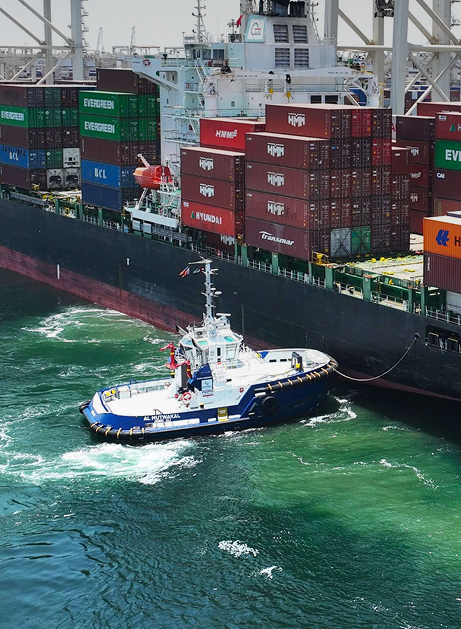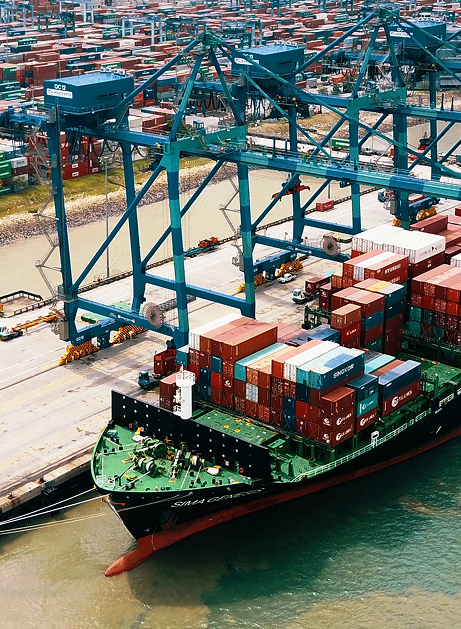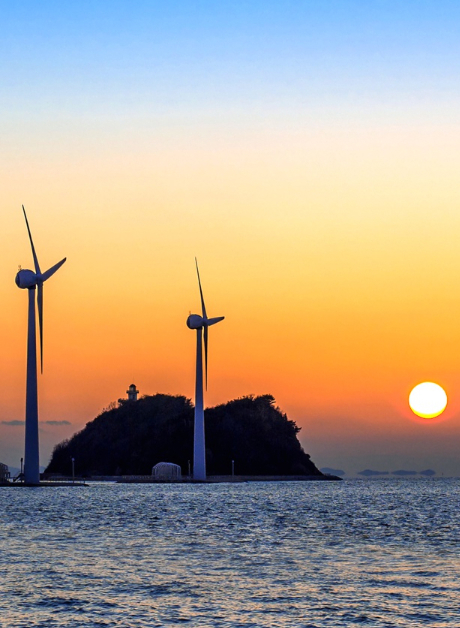
Decarbonization

Sustainability Strategy
At Global Feeders Shipping, sustainability is embedded in our operational framework and fleet management strategy. As a dedicated feedering operator, we are actively aligning with IMO decarbonization targets and global emissions reduction pathways. Our environmental initiatives focus on technical innovation, fuel transition, and performance optimization to deliver lower-carbon shipping solutions across our network.
Silicone-Based Antifouling Systems
We have adopted silicone-based foul-release coatings as the standard across our fleet. These advanced coatings reduce hull roughness and biofouling, leading to measurable improvements in hydrodynamic efficiency. The result is a reduction in propulsion power requirements, fuel consumption, and GHG emissions, while supporting compliance with the Energy Efficiency Existing Ship Index (EEXI) and long-term operational carbon intensity metrics.

Dynamic Hull Cleaning Regime
Global Feeders Shipping employs a data-driven hull maintenance strategy, utilizing performance monitoring systems to schedule underwater cleanings. Maintaining optimal hull condition minimizes drag and reduces energy demand, with direct impact on emissions intensity. Our continuous hull cleaning program is a critical component in achieving sustained vessel efficiency across all trading patterns.
Biofuel Implementation
We are integrating certified sustainable biofuels into our fuel mix as a transitional pathway toward zero-emission operations. Vessels in our fleet are equipped and class-approved to combust advanced biofuel blends (e.g., FAME, HVO), which can deliver up to 90% lifecycle CO2 reduction depending on source and certification. Biofuel use is governed by traceability standards and emission reporting under the IMO Data Collection System (DCS).

Fleet Pooling Efficiency
Through internal fleet pooling and collaboration with third-party pool managers, Global Feeders Shipping optimizes voyage planning and capacity allocation. Pooling improves operational efficiency by minimizing ballast legs, maximizing slot utilization, and reducing total emissions per TEU-mile. It also enhances route flexibility and deployment agility in dynamic trade environments.
Fleet Renewal & Alternative Fuel Ready Vessels
Our tonnage replacement strategy prioritizes the retirement of aging, less efficient vessels in favor of dual-fuel capable newbuilding’s. Ongoing evaluations include LNG-, Methanol-, and Ammonia-ready propulsion systems, designed to meet both near-term and future emissions requirements. New vessels will incorporate energy-saving technologies such as optimized hull lines, air lubrication, and waste heat recovery.

Alternative Marine Power (AMP) Readiness
To reduce emissions in port, Global Feeders Shipping is retrofitting and specifying Alternative Marine Power (AMP) systems across eligible vessels. AMP capability enables vessels to connect to the shore power grid, eliminating the use of auxiliary engines during berthing. When powered by renewable energy sources, AMP significantly reduces scope 1 emissions and enhances compliance with port environmental standards.
Our Forward Path
Our approach to sustainability is grounded in continuous improvement, regulatory compliance, and cross-industry collaboration. We are committed to integrating emissions monitoring, digital performance tools, and fuel lifecycle accounting into our operations. Through these measures, Global Feeders Shipping is positioning itself to navigate the energy transition and deliver sustainable feedering services to the global shipping community.
